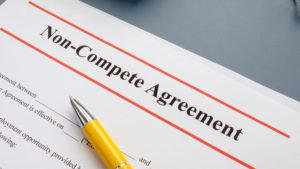
Negotiating Severance Agreements in Virginia
Negotiating a severance agreement, or severance package, can be part of your departure from your employer. It’s important to ensure that you fully understand the agreement before signing. We highly recommend seeking the counsel of a severance agreement attorney in Virginia. What is a Severance Agreement? A severance agreement or severance package is a deal. Essentially, as a former employee, you receive compensation, and your former employer receives various protections. Typically, this includes things that ensure you won’t sue the company, speak poorly of the company or share trade secrets. In laymen’s terms, you have information and things that your employer wants to buy when you are terminated. The most important of these is a release, or your promise not to sue, for anything that happened during your employment. This agreement is legally binding so before you sign it, you need to negotiate what you are willing to sell, and decide on an appropriate sale price. What is Included in a Severance Agreement in Virginia? While each severance agreement is unique, there are several things that are commonly found in these legal documents. First, most employers ask for a general release, which releases the employer from all possible legal claims.





